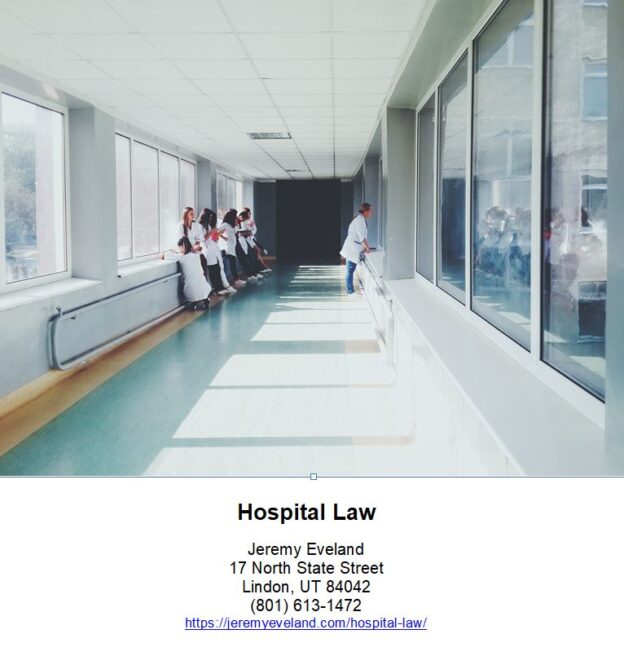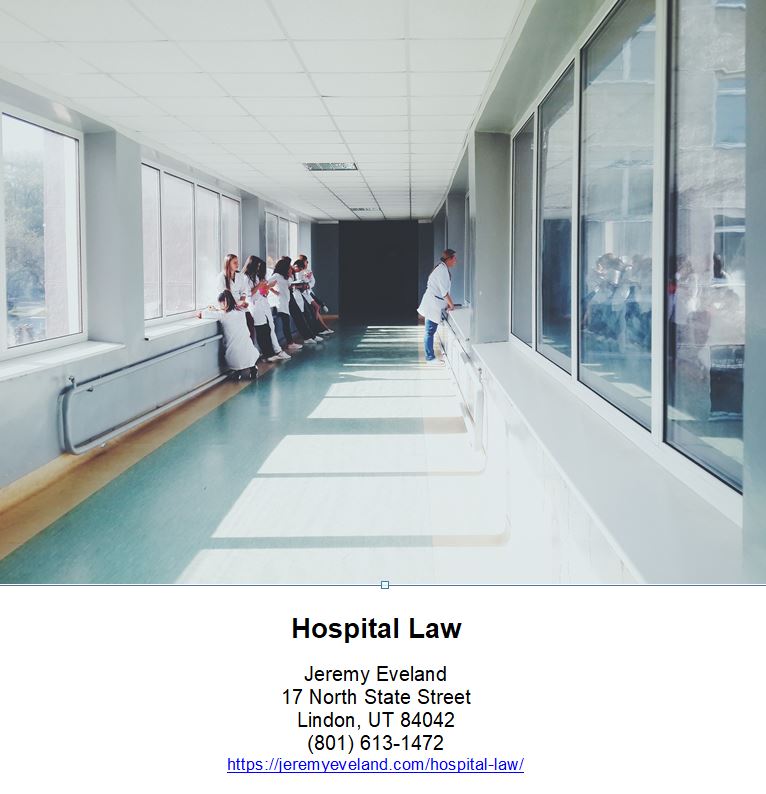Have you ever wondered what happens to the doctor and lawyer fees when you are offered a car accident settlement? Well, let me tell you, it’s a question that often crosses the minds of many individuals who find themselves in this situation. It’s important to understand how these expenses are handled, as it can greatly impact the overall amount you receive. In this article, we will explore the ins and outs of car accident settlements, and shed light on whether the doctor and lawyer fees are paid from the settlement. So, let’s dive into the details and unravel this commonly asked question.

What is a car accident settlement?
A car accident settlement refers to the resolution of a legal case related to a car accident through an agreement between the parties involved, usually the injured party and the insurance company or the at-fault driver. In a settlement, the injured party agrees to accept a certain amount of money to compensate for the damages, injuries, and losses resulting from the accident. It is a way to avoid proceeding to trial and resolves the case in a faster and less costly manner.
Understanding the concept
A car accident settlement is essentially a financial agreement reached between the injured party and the at-fault party or their insurance company. It is meant to provide compensation for various damages, including medical expenses, property damage, lost wages, pain and suffering, and other related costs. The settlement amount is negotiated based on the extent of the injuries and the impact they have on the injured person’s life.
In many car accident cases, reaching a settlement is preferable over going to trial because it saves time, money, and the emotional toll of a courtroom battle. However, it is essential to understand the terms of the settlement before accepting it and ensure that it adequately compensates for the damages suffered.
Importance of settlements in car accident cases
Settlements play a crucial role in car accident cases as they provide a resolution to the legal dispute and help the injured party receive compensation for their losses. They allow both parties to avoid the uncertainties of a trial and reach a mutually agreeable outcome.
For the injured party, a settlement offers the possibility of obtaining financial support to cover medical expenses, property repairs, and other costs resulting from the accident. It provides a sense of closure and can help in the process of moving on and rebuilding one’s life after the accident.
For the at-fault party or their insurance company, a settlement can help mitigate the potential risks and costs associated with a trial. It allows them to resolve the case more efficiently and avoid any further legal expenses or reputational damage.
Roles of doctors and lawyers in car accident cases
When it comes to car accident cases, both doctors and lawyers play crucial roles in ensuring the injured party receives appropriate medical treatment and legal representation. Each has distinct responsibilities that contribute to the overall success of the case.
Doctor’s role and responsibilities
Doctors are fundamental in car accident cases as they provide medical care, diagnose injuries, and document the impact the accident has had on the injured person’s health. Their primary focus is on treating the patient, alleviating pain, and promoting recovery. They play a significant role in determining the extent of the injuries and the necessary medical treatment needed.
In addition to providing medical care, doctors may also be involved in assessing the long-term effects of the injuries, including any potential disabilities or future medical needs. Their medical reports and expert opinions can greatly influence the amount of compensation the injured party may receive in a settlement.
Lawyer’s role and responsibilities
Lawyers, on the other hand, specialize in representing and advocating for the injured party’s legal rights and interests. They handle all legal aspects of the case, including investigating the accident, gathering evidence, negotiating with insurance companies, and, if necessary, filing a lawsuit and representing the client in court.
A lawyer’s primary responsibility is to ensure that their client receives fair compensation for their injuries and losses. They assess the strength of the case, advise their client on the legal options available, and develop a strategic plan to achieve the best possible outcome. They also handle all communication with the insurance company or the at-fault party and protect their client’s rights throughout the settlement process.
Payment of doctors and lawyers
When it comes to payment, both doctors and lawyers have different arrangements for how they are compensated in car accident cases. Let’s explore how each profession is typically paid in these situations.
Is the doctor paid from the settlement?
In most cases, doctors treating car accident victims are not paid directly from the settlement amount. They usually bill their patients or their health insurance providers as they would in any other medical situation. The injured party is responsible for ensuring that their medical bills are paid, whether through their health insurance coverage or by using the settlement funds they receive.
However, doctors may have a financial interest in the settlement if they agree to treat the patient on a medical lien basis. A medical lien is a legal claim against the settlement proceeds, allowing the doctor to recover their fees and expenses directly from the settlement amount. This arrangement typically occurs when the injured party does not have health insurance or the necessary funds to pay for medical treatment upfront.
Is the lawyer paid from the settlement?
Unlike doctors, personal injury lawyers typically work on a contingency fee basis, meaning they are paid a percentage of the settlement amount if the case is successfully resolved. This fee is typically calculated as a percentage of the total settlement, usually ranging from 33% to 40%. If the lawyer is unable to secure a settlement or win the case in court, they do not receive payment for their services.
The contingency fee structure is designed to ensure that injured individuals have access to legal representation without having to pay expensive upfront fees. It allows them to hire a lawyer and pursue their case without incurring additional financial burdens.
Factors influencing doctor’s payment
Various factors can affect how doctors are paid in car accident cases. Let’s take a look at some of the key considerations that impact their payment arrangements.
Medical liens
Medical liens, as previously mentioned, are legal claims against the settlement funds. If a doctor agrees to provide medical treatment on a lien basis, they have a right to be reimbursed from the settlement proceeds. The lien ensures that doctors are compensated for their services, even if the injured party does not have immediate means to pay for their treatment.
The specific terms of a medical lien can vary depending on the agreement between the doctor and the patient. It is essential for injured individuals to discuss potential medical liens with their doctors and understand their financial obligations before accepting any settlement offers.
Health insurance coverage
If the injured party has health insurance coverage, their medical bills may be paid partly or entirely by the insurance company. This means the doctor would receive payment directly from the insurance provider and not be reliant on the settlement proceeds. However, it is important to note that health insurance policies may have certain limitations or exclusions that could affect coverage for car accident-related injuries.
In such cases, the injured party may still need to pay deductibles, co-pays, or certain out-of-pocket expenses. It is crucial to review the terms of the health insurance policy and discuss any potential cost implications with the doctor to avoid unexpected financial burdens.
Negotiations with healthcare providers
In some situations, injured individuals may be able to negotiate with their healthcare providers to reduce medical bills or establish payment plans. This can be particularly useful if they do not have health insurance coverage or if the settlement amount is insufficient to cover all medical expenses.
Negotiating medical bills can involve discussions with the healthcare provider or their billing department to reach a mutually agreeable arrangement. It is advisable to engage the services of a lawyer experienced in personal injury cases to help navigate these negotiations and ensure a fair resolution.
Factors influencing lawyer’s payment
The payment arrangements for lawyers in car accident cases are primarily based on contingency fee agreements. However, certain factors can impact the percentage of the settlement the lawyer is entitled to and the overall payment they receive. Let’s explore some of these factors.
Contingency fee agreements
The percentage of the settlement that lawyers receive as payment is typically determined by the terms agreed upon in the contingency fee agreement. Commonly, this percentage ranges from 33% to 40% of the total settlement amount.
However, the actual percentage can depend on various factors, such as the complexity of the case, the anticipated level of work required, and the specific fee arrangement negotiated with the lawyer. It is important to discuss and clarify the contingency fee structure with the lawyer before entering into any legal representation agreement.
Legal fees and expenses
While the contingency fee covers the lawyer’s payment for their services, it may not include additional legal fees and expenses incurred during the case. These expenses can include court filing fees, expert witness fees, photocopying charges, and other miscellaneous costs.
Before entering into a legal representation agreement, it is crucial to discuss the lawyer’s fee structure and clarify whether the contingency fee covers all legal expenses or if there will be additional charges.
Percentage of the settlement
The percentage of the settlement the lawyer receives as payment is typically agreed upon upfront in the contingency fee agreement. However, it is not uncommon for the percentage to vary based on the stage at which the case is resolved. For example, if the case settles before going to trial, the lawyer’s percentage may be lower than if the case were to proceed to trial.
It is important to have a clear understanding of how the lawyer’s percentage of the settlement will be calculated and whether there are any variations based on different outcomes or stages of the case.
Possible scenarios for doctor’s payment
In car accident cases, how doctors are paid can vary depending on several factors and arrangements. Here are a few possible scenarios that illustrate different payment scenarios for doctors.
Payment directly from the settlement
In some situations, doctors who treat car accident victims may agree to be paid directly from the settlement amount. This can occur when the doctor and the injured party enter into a specific agreement allowing the doctor to recover their fees and expenses directly from the settlement funds.
Such direct payment arrangements are more common when the injured party does not have health insurance coverage or other means to pay for medical treatment upfront. It is important to discuss this option with the doctor and clearly define the terms of the agreement to prevent any misunderstandings or disputes later on.
Medical liens and reimbursement
One common scenario involving the doctor’s payment is when a medical lien is established. As mentioned earlier, a medical lien is a legal claim against the settlement funds that ensures doctors are compensated for their services. Once the settlement is reached, the doctor is paid directly from the settlement amount, typically through their attorney.
This scenario is more frequent when the injured party has limited financial resources and cannot pay for medical treatment upfront. Medical liens provide doctors with the assurance of payment, even if the injured party does not have immediate means to cover their medical expenses.
Health insurance involvement
If the injured party has health insurance coverage, doctors providing medical treatment may choose to bill the insurance company directly. In these cases, the doctors are paid by the insurance provider and are not reliant on the settlement proceeds.
However, it is important to review the health insurance policy terms and discuss any potential limitations or exclusions related to car accident injuries. The injured party may still be responsible for certain deductibles, co-pays, or out-of-pocket expenses not covered by the insurance.

Possible scenarios for lawyer’s payment
Lawyers handling car accident cases typically work on a contingency fee basis, but the specific payment arrangements can vary depending on the circumstances. Here are a few possible scenarios that illustrate different payment scenarios for lawyers.
Contingency fee structure
The most common scenario for lawyer payment is through a contingency fee structure. In this arrangement, the lawyer is paid a percentage of the settlement amount if the case is successfully resolved. If the lawyer is unable to secure a settlement or win the case in court, they do not receive payment for their services.
The contingency fee structure allows injured individuals to access legal representation without having to pay expensive upfront fees. It creates a partnership between the lawyer and the client, aligning their interests in pursuing a favorable outcome.
Advance payment of legal fees
In some cases, lawyers may require an advance payment of legal fees before taking on a car accident case. This means that the injured party would have to pay a certain amount upfront to cover the lawyer’s initial fees and expenses.
Advance payment arrangements can vary depending on the lawyer and the specific circumstances of the case. It is important to discuss the fee structure and payment expectations with the lawyer during the initial consultation to fully understand the financial commitment involved.
Final settlement payment
Once a car accident case is settled, the lawyer’s payment is typically calculated based on the agreed-upon percentage of the settlement. The settlement funds are received by the injured party, and the lawyer’s fee is deducted from the total amount before it is disbursed.
The lawyer’s payment is usually handled by their law firm, which deducts their fees and expenses from the settlement funds before providing the remaining amount to the client. This ensures that both the lawyer and the injured party receive their respective shares from the settlement.
Negotiations and disbursements
Negotiations and disbursements are critical aspects of the settlement process in car accident cases. Let’s explore the importance of negotiation skills, the different components of the settlement, and the disbursement of funds.
Importance of negotiation skills
Negotiations play a vital role in reaching a favorable settlement in a car accident case. A skilled negotiator, such as an experienced personal injury lawyer, can advocate for the injured party and negotiate with the insurance company or the at-fault party to secure a fair and reasonable settlement amount.
Effective negotiation skills involve assessing the strength of the case, calculating the value of the damages suffered, and presenting persuasive arguments to support the injured party’s position. Good negotiators have the ability to reach compromises and find common ground that benefits their client without the need for a protracted legal battle.
Different components of the settlement
A settlement in a car accident case typically involves several components that determine the overall amount of compensation the injured party may receive. These components can include:
-
Medical expenses: This covers the cost of medical treatment and any related expenses, such as rehabilitation, medication, and medical equipment.
-
Property damage: If the car was damaged in the accident, the settlement may include compensation for repair or replacement costs.
-
Lost wages: If the injured party was unable to work due to their injuries, they may be entitled to compensation for lost wages and any potential future loss of earning capacity.
-
Pain and suffering: This component seeks to compensate for the physical and emotional distress endured as a result of the accident, including pain, mental anguish, and loss of enjoyment of life.
-
Other damages: Depending on the circumstances, additional damages such as loss of consortium, loss of companionship, or punitive damages may be considered.
It is crucial to thoroughly evaluate each component of the settlement and ensure that all relevant damages and losses are included in the negotiation process.
Disbursement of funds
Once a settlement is reached, the disbursement of funds occurs. The settlement funds are typically paid to the injured party, either directly or through their lawyer, depending on the agreed-upon arrangement.
Before disbursing the funds, the lawyer deducts their fees and expenses from the settlement amount. They then provide the remaining funds to the injured party, ensuring that they receive the agreed-upon compensation.
It is important for the injured party to understand the disbursement process, including when and how the funds will be transferred. Open communication with the lawyer can help facilitate a smooth disbursement and address any questions or concerns.

Effect of settlement on medical bills and legal fees
Settlements in car accident cases can significantly impact both medical bills and legal fees. Let’s explore how settlements can reduce medical bills, the impact on lawyer’s fees, and the reimbursement and payment arrangements that may arise.
Reduction of medical bills
One of the primary benefits of reaching a settlement in a car accident case is the potential reduction of medical bills. Settlements often include compensation for medical expenses, allowing the injured party to pay off outstanding bills and cover the costs of future treatment.
When negotiating a settlement, lawyers can often negotiate with healthcare providers to reduce medical bills or establish payment plans that are more manageable for the injured party. This can provide significant financial relief and help alleviate the burden of medical debt.
Impact on lawyer’s fees
Settlements can also impact the lawyer’s fees in a car accident case. As mentioned earlier, lawyers typically work on a contingency fee basis, meaning they receive a percentage of the settlement amount as payment for their services.
The contingency fee is calculated based on the total settlement, including any compensation for medical expenses and other damages. Therefore, if the settlement amount is substantial, the lawyer’s fees will also be higher. However, the exact percentage agreed upon in the contingency fee agreement remains the same.
It is important for the injured party to discuss the potential impact of the settlement on their lawyer’s fees and ensure they have a clear understanding of the financial implications before accepting any settlement offers.
Reimbursement and payment arrangements
In some cases, the injured party may have already paid their medical bills out of pocket or through their health insurance coverage. When a settlement is reached, reimbursement or payment arrangements may need to be made to ensure that all parties are appropriately compensated.
If the injured party has already paid their medical bills, they may be entitled to reimbursement from the settlement funds. This typically involves providing proof of payment and documentation to support the expenses incurred.
Alternatively, if the injured party has outstanding medical bills and has not yet paid, the settlement funds may be used to cover these expenses directly. This can be done through negotiated arrangements with healthcare providers or by following the terms of any existing medical lien agreements.
It is essential for injured individuals to keep accurate records of their medical expenses, maintain open communication with their lawyer, and seek guidance on the reimbursement and payment arrangements to ensure a fair and equitable resolution.
Seeking professional advice
Navigating the complexities of car accident settlements can be challenging without professional guidance. Seeking the advice of a lawyer experienced in personal injury cases is crucial to ensure your rights are protected and you receive the compensation you deserve. Let’s explore why it is important to consult a lawyer, understand your rights, and find the right legal representation.
Importance of consulting a lawyer
Consulting a lawyer after a car accident is essential to fully understand your legal rights and options. A knowledgeable lawyer can assess the strength of your case, guide you through the settlement process, and advocate for your interests.
By consulting a lawyer, you gain access to their expertise and experience in handling car accident cases. They can help you navigate the complexities of the legal system, negotiate with insurance companies, and ensure that you receive fair compensation for your injuries, damages, and losses.
Understanding your rights
Car accident victims have legal rights that entitle them to compensation for their injuries and losses. However, understanding these rights and how to protect them can be challenging without legal expertise.
A lawyer can help you understand your rights and explain the legal options available to you. They can assess the specifics of your case, identify any liable parties, and determine the most appropriate course of action, whether it is pursuing a settlement or filing a lawsuit.
By knowing your rights, you can make informed decisions and take the necessary steps to protect your interests and secure the compensation you deserve.
Finding the right legal representation
Finding the right lawyer to represent you in a car accident case is crucial to the success of your claim. It is important to choose a lawyer who specializes in personal injury law and has a track record of successfully handling car accident cases.
When selecting legal representation, consider factors such as experience, reputation, communication style, and fee structures. Schedule consultations with potential lawyers to discuss your case, ask questions, and assess their suitability for your needs.
By finding the right legal representation, you can have confidence in your lawyer’s ability to protect your rights, negotiate on your behalf, and guide you through the settlement process.
Frequently Asked Questions (FAQ)
- Can I negotiate my medical bills after a car accident settlement?
Yes, it is possible to negotiate your medical bills after a car accident settlement. Working with a lawyer experienced in personal injury cases can help you navigate negotiations with healthcare providers to reduce medical bills or establish payment arrangements.
- How are lawyers paid in car accident cases?
Lawyers in car accident cases are typically paid on a contingency fee basis. This means they receive a percentage of the settlement amount as payment for their services. If they are unable to secure a settlement or win the case, they do not receive payment.
- Can doctors be paid directly from the settlement?
In some cases, doctors treating car accident victims may be paid directly from the settlement amount. This typically occurs when a medical lien is established, allowing doctors to recover their fees and expenses directly from the settlement funds.
- How do settlements impact medical bills?
Settlements in car accident cases can help reduce medical bills by providing compensation for medical expenses. Negotiations with healthcare providers can also help reduce bills or establish manageable payment plans.
- Why is it important to seek professional advice after a car accident?
Seeking professional advice after a car accident is crucial to understand your legal rights, navigate the complexities of settlements, and ensure you receive fair compensation. Lawyers can provide guidance, advocate for your interests, and protect your rights throughout the process.








